The following story is called Mickie’s Stars. It is one of eleven that appears in my short story collection, Southern Bones. It is also one of my wife’s favorite stories. If you like Mickie’s Stars and would like to read more of Southern Bones, you can get an autographed print copy by clicking on the link at the end of the story. If you have any questions, please leave a comment at the end of the story and I will get back to you as soon as possible.
Thank you for reading Mickie’s Stars. I hope you enjoy it.
A.J.
MICKIE’S STARS
Mickie looked up from her sandcastle, the archway almost complete, two pieces of broken twigs from the parking area holding it up.
Across the way, a little girl cringed as an adult yelled at her. The man had dark hair and an angry face, his eyes like black marbles surrounded by splashes of red and white. He yelled something Mickie couldn’t quite understand. But the tone … the tone she understood all too well. He wagged a finger at the little blond-haired girl with pigtails dangling to either side of her head. She wore a one-piece bathing suit, pinks and purples with dots of yellow. One foot was clad in a similarly colored flip-flop; the other one was bare. The girl looked as if she wanted to crawl inside herself and hide; just disappear from the world altogether, especially from the man with the angered face and thick pointing finger.
Mickie stared, not meaning to, but doing it just the same—instinctive, her mom would say. Others would argue she was rude and the proper thing to do was to look away, to go back to whatever she was doing (in this case, playing in the wet sand on the edge of the ocean, building castles the tide would wipe away by evening). Staring was something Mickie was used to. So many others—children and adults alike—gawked at her brilliant white skin littered with stars of many colors. Yellows, blues, greens, reds, oranges all clung to her flesh in shapes with many points—not just five like the hand drawn stars kids learned how to trace when they are in pre-school, but circles with tiny points jutting out in all angles. Real stars.
The man pulled one of the girl’s pigtails hard enough to jerk her head to the side. She toppled to the ground and landed on her hip. Mickie heard her scream and saw tears streaking from her reddening face. The man reached down and grabbed the girl’s foot, yanked off the lone flip-flop and stomped over to a trashcan. He tossed it in, and then glared at the little girl.
“Now get out of my sight.”
Mickie glanced around the beach. Several people watched the events unfold, but none of them intervened. A few of them shook their heads and whispered to one another, but when all was said and done, they turned away, some of them moving their blankets or chairs further down the beach. Mickie stood and went to her mother, a brown haired woman with tanned skin and tattoos lining her body, very much in the same manner Mickie’s stars did.
“Momma,” she said. “Why isn’t anyone helping that little girl?”
Momma looked up from her book—one of vampires and romances Daddy found to be nauseating. She lowered her sunglasses, showing Mickie her brown eyes—motherly, caring eyes. “They’re afraid, sweetie,” she said, her voice soft and smooth. “And when people are afraid they often do nothing.”
“Are you afraid?”
“Sometimes,” Momma said, lifted her sunglasses to cover her eyes and went back to her vampire novel.
Mickie nodded, then walked back to her sandcastle. She drew lines on the arch and began to dig the mote that would surround it. A mote in medieval times were said to keep dragons and ogres and giants at bay. And armies wishing to conquer the kingdom of the good king and queen and all of their royal subjects. She read that somewhere, or maybe it was read to her, but she remembered the stories, and the mote was important to the survival of the kingdom (even though Mother Nature was going to wipe them out anyway). It was the barrier, the invisible force field, as her younger brother would say. “You have to have an invisible force field It keeps the bad guys away.”
She glanced up every once in a while, pulling herself from the construction of her doomed castle. The girl stood by herself, staring out at the ocean. Mickie wondered what she thought, if she hated the man who had yanked her pigtail and tossed her flip-flop in the trash. The girl looked her way, and quickly diverted her eyes.
Mickie stood, walked over to the girl. “Hi,” she said. “Do you wanna play with me?”
The girl looked up, her face still red and tear-stained. She shrugged.
“It’s okay,” Mickie said. “I know I look different, but I’m not going to hurt you like your dad did.”
The girl’s brow furrowed and her frown deepened. “He’s not my dad,” she said in a whisper.
“He’s not?”
She shook her head.
“Who is he, then?” She had always been curious about things. Those same people who would say she was rude for staring would say she was nosy, as well. Mickie searched the beach, looking for the man the girl came with. She spotted him talking to a young brunette in an orange bikini, her breasts barely able to fit within the top. The woman laughed and touched the man’s arm.
“He’s my mom’s boyfriend,” the girl said.
Mickie nodded. “Is that your mom?”
The girl turned, shook her head from side to side.
“So, do you wanna play with me? I’m building a sandcastle.”
“I don’t know,” the girl said and looked at her bare feet. “Brent might get mad at me if he sees …”
Mickie knew that pause, the awkward silence as someone tried to pick and choose her words.
“It’s okay,” Mickie said. She watched the mother’s boyfriend flirt with the brunette. His hand rested on her back now, touching skin Mickie had a feeling he shouldn’t be touching. “I’m not a freak. I just look different. And, really, I don’t think Brent is worried too much about you right now.”
The girl nodded, shrugged again. “Okay,” she said.
Mickie smiled. Her teeth were as bright as her skin. “I’m Michelle, but everyone calls me Mickie.”
“My name is Allison.”
They walked to the sandcastle, sat in the wet sand. “I’m digging a mote around the castle,” Mickie said. “You start over there and we’ll meet in the middle.”
And they dug, two girls, a couple of years apart in age, one barefoot with pigtails, the other an oddity even to her mother.
“What’s wrong with your skin?” Allison asked.
Mickie looked up to see Allison staring at her. It was a typical question, to which she gave her typical answer. “I don’t know—it’s always been this way. Since I was a baby. Mom says I’m special, that the stars are there for a reason.”
“What’s the reason?”
It was Mickie’s turn to shrug. “I don’t know, but I like them. It makes me …” she paused, unlike the awkward breaks in sentences people gave her, but a thoughtful one where she was looking for the right word to describe herself. “It makes me unique.”
“Unique?”
“Different. Not like anybody else.”
Allison smiled. “I wish I had stars on my skin.”
“Do you think it would make Brent like you?”
Allison looked down, then at the ocean. Birds swooped from the sky, chatting with each other before flying up again. The tide was coming in. Another couple of hours and the water would be at their feet; another hour after that and the castle would be only a memory.
“So, how deep should we dig this mote?” Mickie asked.
“How deep do you want it?”
Mickie put one hand up, held her thumb and first finger as far apart as they would go. “This deep.”
“Okay.”
Allison drove a yellow plastic spade into the ground, placed the sand into one of the pails. They did this for a short while, working their way around the mote, the minutes becoming an hour before they knew it. Mickie looked up. Allison’s face was a mask of determination. Though her tears had dried, there were still tracks on her dirty skin.
“So,” she said, “why was Brent so mad at you?”
The girl stopped digging, and looked up at Mickie, one side of her mouth turned down. She shrugged. Mickie thought the girl probably shrugged a lot, unsure of what to say more often than not. “I lost my flip-flop.”
“He got mad about that?”
Allison nodded, scooped out another spade full of sand. “He gets mad about a lot of stuff. He’s not very nice.”
“Are you going to tell your mom what he did?”
Allison looked up from the mote, her eyes large. Her bottom lip trembled slightly. She suddenly stood out against the backdrop of the world around her, a three-dimensional image on a flat surface. “Oh no,” she said. “That would be bad. Besides, Mom is scared of him—he hits her when he’s mad.”
“Really?”
“Yeah.”
It was Mickie’s turn to look out toward the ocean, her thoughts dashing in and out of her mind in colorful blurs.
“Mickie, your stars are glowing.”
“Yeah, they do that,” Mickie responded, but failed to add they only did it when she was thinking about how to handle something; how to deal with a judgmental world where the strong dominated the weak. She had seen it so many times. Bullies beating up smaller kids, their parents just as belligerent and angry as their offspring. The gawkers who didn’t know how to take the odd little girl with the light red hair and impossibly white skin … and the stars—the countless stars along her body. They often acted out of ignorance or fear (mostly fear as Momma had told her many times before, though it contradicted her statement of people doing nothing when scared. For Mickie, she thought it was the other way around: they react more violently out of fear than when all was right in their world).
“Why?”
Mickie thought for a moment, then simply said, “I don’t know. I’ll be right back.”
She got up and walked over to Momma.
Momma looked up from her book when Mickie tapped her on the foot. “Yes, Mickie?”
“Can I go get my doll box?”
Momma lowered her sunglasses again, her light brown eyebrows lifted. “Why?”
Mickie pointed to Allison. “I want to make her a doll.”
“Why?”
“Allison doesn’t have any friends. I want to make her a special doll.”
Momma gave her a small smile. “I don’t see why not.” She handed over the car keys and lifted her sunglasses over her eyes. “Make sure and lock the door back.”
“Yes, ma’am.”
Mickie hurried to the car, unlocked the front door. She reached in, grabbed the pink box—a caboodle, Momma called it. She flipped the lock button on the door and slammed it shut. Mickie started to run back to the beach, but stopped when she saw a purple and pink flip-flop lying near a car. She knelt down, picked it up and smiled.
“Hey, Allison,” she yelled as she reached the beach. Absently, she dropped the keys in Momma’s lap and continued running to the sandcastle and the little blonde girl digging the mote. “Look what I found.” She held the flip-flop up and watched as Allison’s eyes grew and a smile stretched her face—something Mickie was certain she didn’t do often.
“My flip-flop,” Allison said and stood. She took it and slid it on her foot. “Where was it?”
“In the parking lot,” Mickie said. “Let’s go get the other one.”
Allison shook her head, “If I leave the beach and Brent finds out, he’ll whip me.”
Mickie’s shoulders sagged. The excitement of finding the lost flip-flop faded as fast as it had arrived. “I’ll go get it,” she said, keeping the enthusiasm in her voice. She went to the trashcan near the changing booths. Kids played in the outdoor showers, rinsing off saltwater and sand. One of them whined, “Jeffery got water in my eyes.”
The flip-flop was in the trashcan, a white Styrofoam cup on top of it, ice and soda spilled out from its open lid. With thumb and first finger she lifted the flip-flop from the trashcan and held it at arms length. At the showers, she pressed a chrome button with the word PUSH on it. Water sprayed from a nozzle above her. As she rinsed off the flip-flop, the boy she assumed was Jeffery sat on a bench, his arms crossed, bottom lip jutting out. His mother fussed at him for being mean to his little brother. Behind her back, the little brother stuck his tongue out at Jeffery.
“Now you tell Dennis you’re sorry,” she said.
“But I didn’t do anything,” Jeffery argued.
The slap to his leg brought tears from the older child. Dennis smiled in what could only pass as satisfaction.
“Do as I said,” his mother snapped.
Jeffery stood, apologized and rubbed the angry red handprint on his leg. His mother turned and comforted the little boy, his deception rewarded. An indigo star glowed on Mickie’s left arm. It pulsed, sending shivers down into her fingertips.
Mickie knelt down, opened the pink caboodle and flipped through various pieces of thread and cloth, Popsicle sticks, buttons and markers until she came to a clear box. Inside sat several stick figures made from colored toothpicks. Their heads were small beads glued on. She lifted out a yellow stick figure and a black marker. On the brown head she wrote the letter D. She closed the caboodle and walked up to Jeffery, who sat on the bench as his mother and Dennis went inside a changing booth.
“That sucks,” Mickie said.
Jeffery looked up, said nothing at first, then spoke, “What do you want?”
“I saw what your brother did. It’s not fair you got into trouble like that.”
“Whatever.”
“Here,” Mickie offered up the stick figure.
“I don’t want that,” he said. “Only girls play with dolls.”
“It’s special,” Mickie said. “I made it just for you.”
Jeffery took the doll, looked at it. “I don’t want it,” he said and tried to hand it back.
“It’s yours. I made it for you.”
“You don’t even know me, you freak.”
And it was out. Freak. The word used to describe her most of her life. She took a deep breath and bit back the rising anger. The boy was mad, as well, but not at her. He was just lashing out. That’s what she told herself, at least.
“I’m not a freak,” she said. “I just wanted to help you.”
She took the doll back and started away.
Jeffery caught up to her and grabbed her arm. “I’m sorry,” he said. “I’m just mad I got in trouble, again. for doing nothing. Sometimes I hate him.”
“Hate him? Really?” A smile creased her face. “If this were your brother, what would you do?”
With no hesitation, “Break his arm.”
“Do it, then,” Mickie coaxed. “Break his arm.”
“What? Are you crazy? I can’t do that. I’ll get me in more trouble than I’ve ever been in.”
Mickie shook her head. “No, Jeffery,” she said. “Break the doll’s arm. It might make you feel better.”
This time his lips stretched up, his brows lowered. He took the doll from Mickie and stared at it. He started to break it in half, but Mickie stopped him.
“No,” she said. “Only break one arm. You can’t break the rest of it.”
“Why not?”
“You just can’t.”
“Okay, whatever.” With no effort, he snapped the right toothpick arm in half.
“Feel better?” she asked.
“Yeah, I do. Can I break the other arm?”
“No,” Mickie said and put out her hand. The indigo stars dazzled along her skin. Jeffery’s eyes grew distant, as if he stared beyond her and out into the ocean. “Now, give it back.”
Jeffery handed the doll back to Mickie, broken toothpick and all. Mickie turned, put it back in her caboodle and left him standing there, confusion in his eyes.
Mickie went back to the beach, the indigo star no longer shimmering. She sat down beside Allison and set the flip-flop on the ground. Allison had finished the mote and had begun working on outside towers in the shapes of pails.
“Here’s your flip-flop,” Mickie said.
“Thank you,” Allison responded, slid the flip-flop on her foot and wiggled her toes. “What’s that?” she then asked.
“It’s my doll box.”
“Doll box?”
“Uh huh. I make dolls. Would you like me to make you one?”
“Yeah.” Enthusiasm, strong and real, showed in Allison’s eyes, in her smile, the way she nodded her head like a puppy waiting for a treat, tail wagging hard enough to shake its butt from side to side.
“I get to choose the type of doll, okay?” Mickie said.
“Okay.”
Mickie gazed out at the ocean, at the way the waves crashed onto the beach. The afternoon was waning and the water grew closer and closer to the sandcastle. Her stars began to glow, soft at first and then brightly.
“The waves are coming in. Soon, the castle will be destroyed.”
Allison screwed up her face, her jaw hanging slightly. “Huh?”
Mickie opened her caboodle. She pulled out several Popsicle sticks and markers and a small Styrofoam ball for the head. A bottle of glue followed and she began to put the parts together. As she pieced the legs to the torso, the water began to lap at the edges of the mote.
“Can I help?” Allison asked.
“Sure. Hold these two pieces so I can glue them in place.” Allison held the two Popsicle sticks apart and Mickie picked up the small glue bottle. She put one clear dot in the center and helped Allison put the legs together, forming a V.
“How long do I have to hold this?” Allison asked.
“Not too long—this stuff dries fast.”
Mickie put another dot on the torso, handed it to Allison who put it on top of the V, making it look like an upside down Y. The arms followed. Mickie reached into the caboodle, rummaged around until she found one of Daddy’s nail punches—a small instrument that looked like a pen made of steel. She drove it into the Styrofoam ball and then set it on the Popsicle figure’s neck.
“Your stars are shining,” Allison said.
Mickie glanced at her skin. They were glowing brighter than before, the tips sparkling, the centers almost completely white. She said nothing at first. Instead, she pulled out a marker, handed it to Allison. “Draw a face—Brent’s face.”
Allison scrunched up her nose. “Why him?”
“Because.”
“Because why?”
“Just because.”
“You sound like Mommy.”
The water began to wash over the mote, pushing against the castle’s walls. When the tide went out, it pulled beach sand with it.
Allison drew an upside down U for a mouth. She had one dot in place for an eye when the growl came.
“Allison!”
Mickie looked up just as Brent reached them. His eyes were two pieces of hot coal set deep in their sockets.
“What are you doing with this freak?” Brent grabbed one of Allison’s arms. She screamed and dropped both the doll and pen.
Mickie’s stars glistened in the sunlight, the colors nearly completely gone from them. “I’m not a freak,” she snapped, her eyes narrowed.
“Watch how you talk to me, freak girl. I’ll smack you into next week.”
“Do it,” Mickie said, her lips a thin line dividing her face.
Brent stared long at her, but Mickie held her ground. After a moment, he turned his attention back to Allison. “Why are you wearing those flip-flops?”
“They’re mine,” Allison said, her voice almost a whisper. Tears had begun to fall down her face again.
“I threw one of them away. Did you dig it out of the trash?”
“No, sir, I—”
Brent’s hand connected with Allison’s face, a quick slap that clearly caught her off guard. A stinging red mark appeared where his fingers had struck. “Your momma’s on the way to pick you up. You just wait until I tell her you’ve been rummaging in the garbage like a street person. You’re a filthy, nasty little girl.”
“And you’re a mean old man,” Mickie said. She picked up the doll and the pen. She finished the eye as Brent yelled at her about minding her own business and kids like her ended up in jail or worse—dead.
“Are you listening to me?” he yelled.
“No,” Mickie said flatly and wrote his name on the Popsicle stick that made up his torso.
Brent released Allison and knelt down beside Mickie. He grabbed her by the top of the head, lifting her eyes to meet his. “I should knock your teeth down your throat, you little brat.”
Mickie smiled. The stars on her body turned pink, then red. Her eyes rolled into the back of her head and she dropped the doll into the courtyard of her sandcastle. The waves tickled her toes and ran over the tops of her feet as the stars changed color again, going from red to purple to blue. She closed her eyes and then opened them. Brilliant green irises stared out at Brent, and then she was falling. She landed at the back of the sandcastle, crushing one of the mighty walls she had built. But, the mote remained intact.
Her eyes cleared and Brent towered over Momma. Her face was a mask of rage, a finger poked out at him. She yelled. He yelled back. Behind them, Allison scooted through the sand on her bottom.
A woman ran from the parking area, brown-haired and tanned, not so much like Momma, but enough to have a light brown hue to her skin. She called for Allison and the little girl with the pigtails and pink and purple flip-flops with yellow dots on them, stood and ran for the woman. She was crying and saying something about Brent being mean.
Mickie scooped a handful of sand from the ruined castle wall and packed it around the Brent-doll’s legs. Brent—the man—growled and slapped Momma across the face. The crack of hand on cheek sent her to the ground. Several people watched as the altercation took place. Scared, Mickie thought. And when someone is scared, they often do nothing.
She stood and ran to Brent. He towered over Momma with his hands balled into fists. Momma rubbed her jaw. A trickle of red slid from her swelling lip. Mickie’s stars popped and crackled like electricity burning her skin. She slapped his back with both hands. Heat from the stars ran down her arms and into her fingertips.
Brent’s back arched. He screamed, a loud, piercing sound of pain and surprise. His knuckles turned white as his fists grew tighter. Bones popped and smoke poured from his skin.
“Mickie!” Momma screamed. “Let go of him!”
She held on for a few seconds longer before removing her fingers from his singed shirt, leaving behind two smoldering black handprints. Brent stumbled backward; fell onto the castle, crushing two of its high turrets—where the archers would have been in medieval times.
The tide came in, crashing further and further up the beach. What remained of the destroyed kingdom began to wash away, pulled into the ocean by the undertow.
Brent got to his knees as seawater splashed over his legs. He cupped his hands against his chest. Blood dripped from ruined fingers. “You’re going to pay for this, kid,” he said and tried to stand, but his legs wouldn’t cooperate. They shook and dropped him back to his knees. When he finally managed to get to his feet he took one step forward and stopped, his face smacking into an invisible wall, or a force field, as Mickie’s younger brother would say. He reached his hands out, placing his palms against nothing and something all the same. Brent went in a circle, his hands up, appearing to pat the air around him like a frantic mime—one with broken and bloody fingers. He screamed for help, but the onlookers only backed away. Some of them snickered at him, while others whispered about the crazy man without enough sense to get out of the rising tide, how his mouth opened in a silent cry for help, a sound that never came from his throat. One man tossed a quarter at Brent’s feet.
“Impressive act,” he said and walked away.
Mickie stared, unblinking, at the fear in Brent’s face. Momma took her by the arms and leaned down so her lips were to Mickie’s ear. “What have you done?”
“Nothing,” she responded.
“Mickie, let him go. Let him go, now.”
“I can’t.”
“Why not?” Momma asked, her bottom lip bleeding.
“Because I’m not afraid of him.”
“What’s that have to do with anything?”
“They are.” She pointed to Allison and her mother. They were hurrying away from the beach, the mother all but carrying the little girl. “Besides, the doll’s in there with him. There’s nothing I can do.”
Momma shook her head. “Let’s go.”
“Okay,” Mickie responded and closed her caboodle, snapping it shut. She picked it up and started for the parking area.
On the long wood deck that led to the parking lot, they passed Jeffery. He sat on a bench, his chin in his hands. Dennis ran around in the shower area, taunting and teasing his older brother. Mickie passed them and nodded. “Have a good day, Jeffery,” she said. A moment later, Dennis slipped in the water, landing on his arm. His screams were loud. Momma started to go to him, but Mickie held her hand firm. “No, Momma, his mother is coming.”
Mickie turned back to the beach. From where she stood, she could see Brent thigh-high in the ocean. His lips moved, but nothing came out. In maybe an hour the tide would wash him out to sea. Mickie turned and walked to the parking lot with her mother.
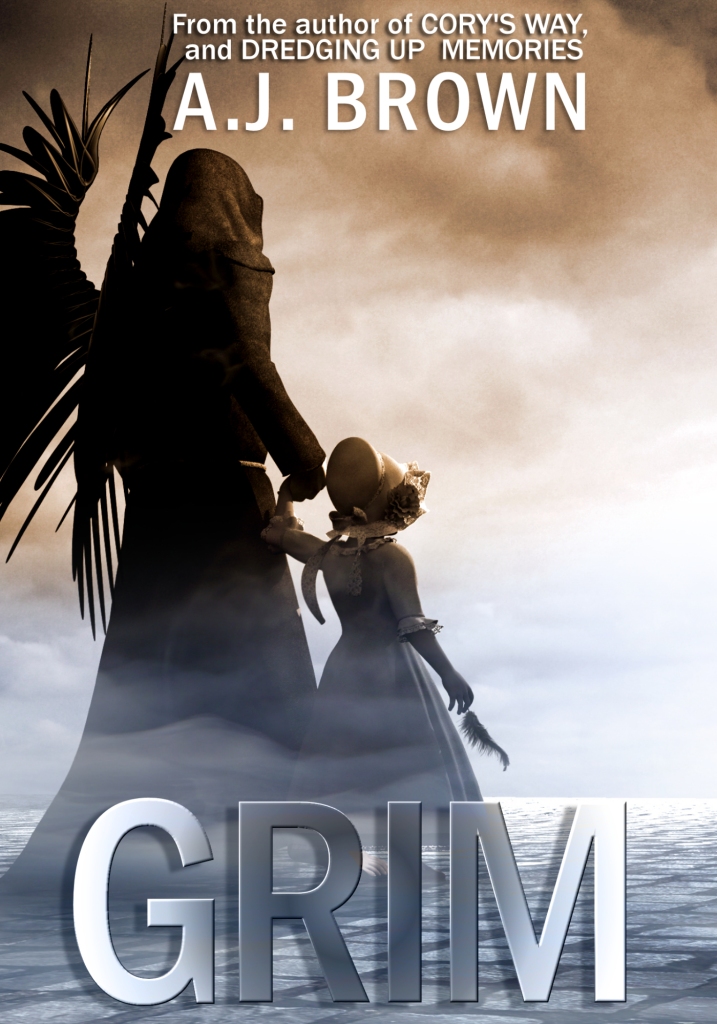

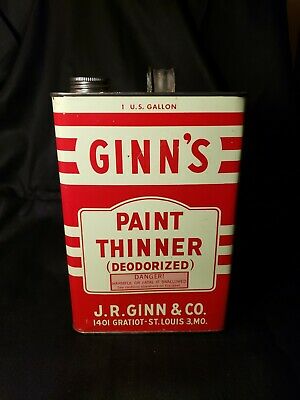






 Over the next two weeks I will posts the story Because I Can in a four part series. They will be posted on Tuesdays and Thursdays, starting tomorrow.
Over the next two weeks I will posts the story Because I Can in a four part series. They will be posted on Tuesdays and Thursdays, starting tomorrow.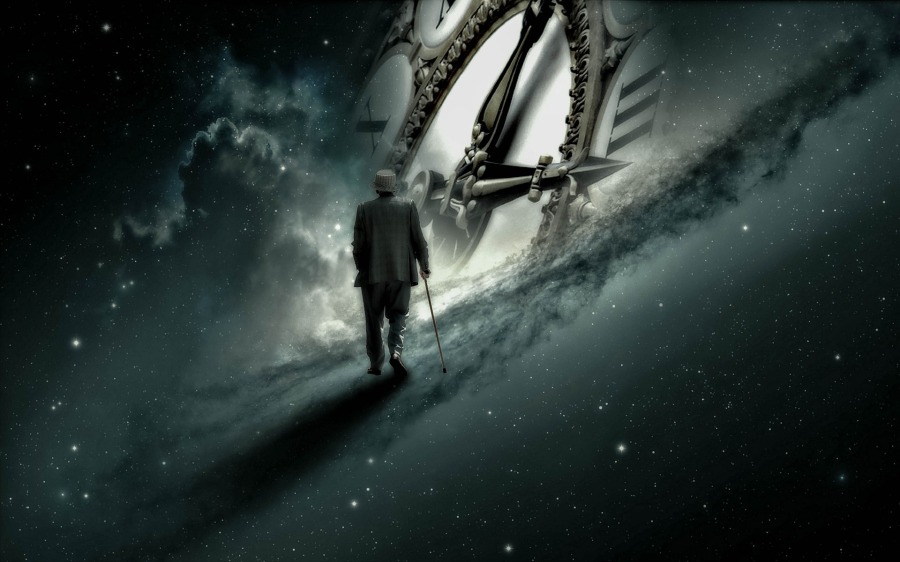
 “Eldridge,” she says, her voice slightly high pitched. “Are you okay?” She holds a needle in one hand while glancing at my monitors, the heart rate a steady beepbeepbeepbeep, probably too fast for her liking—certainly too fast for mine. Seconds pass and she has the needle in the IV, pushing a clear liquid into my veins. A few more seconds and my heart rate slows, my breathing restored to its simplistic in and out rhythm. I relax.
“Eldridge,” she says, her voice slightly high pitched. “Are you okay?” She holds a needle in one hand while glancing at my monitors, the heart rate a steady beepbeepbeepbeep, probably too fast for her liking—certainly too fast for mine. Seconds pass and she has the needle in the IV, pushing a clear liquid into my veins. A few more seconds and my heart rate slows, my breathing restored to its simplistic in and out rhythm. I relax.
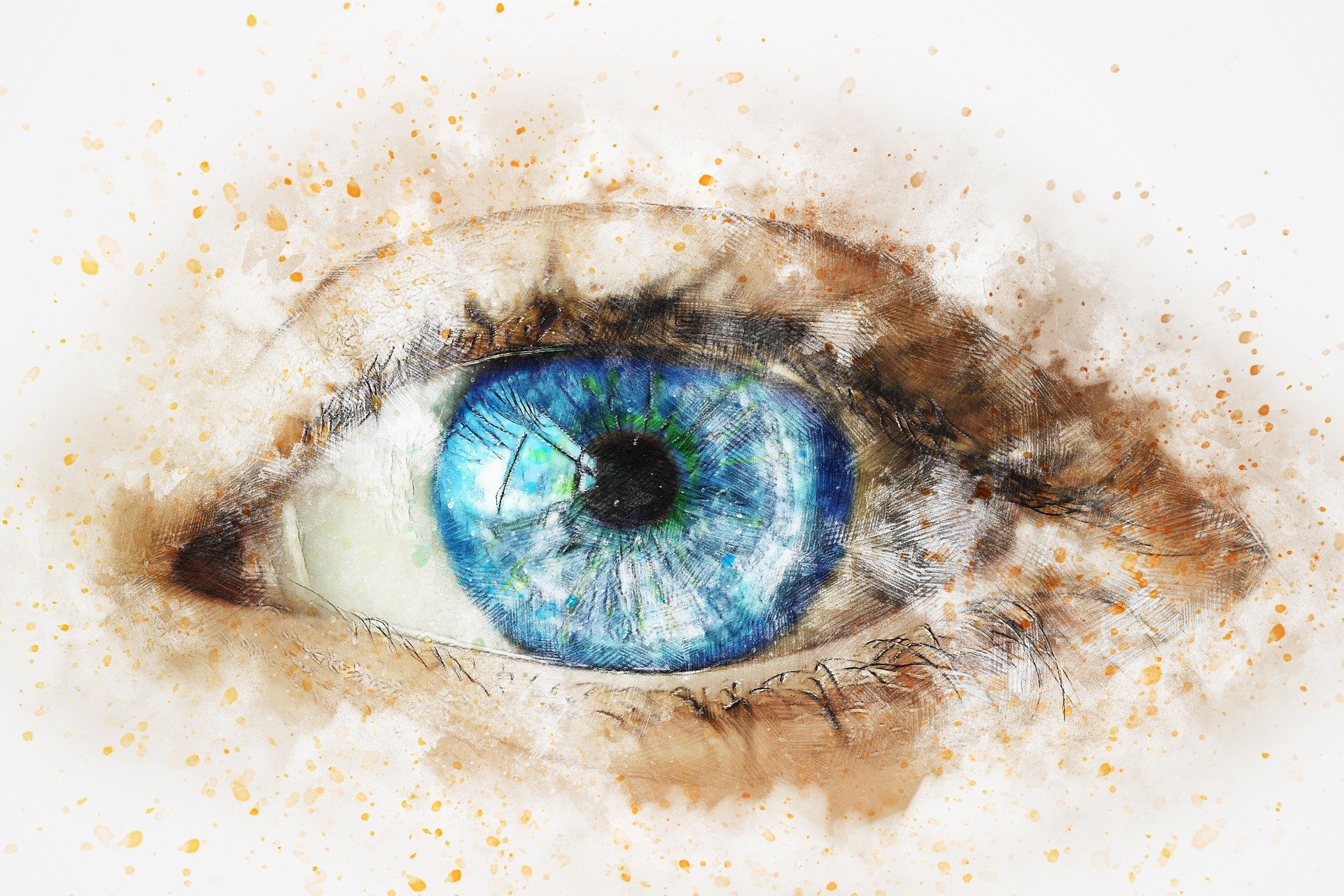 “You ever see the light dim in someone’s eyes?”
“You ever see the light dim in someone’s eyes?”
 The world awaits, absorbs the pelting as each drop shatters on contact, soaking into the ground or mixing with dead rain pellets. Cold bodies on human skin, wiped away into nothingness. Oxygen uses their remains to form rust on metallic surfaces. Some of them cling to limbs and bars and bumpers, their lives almost over.
The world awaits, absorbs the pelting as each drop shatters on contact, soaking into the ground or mixing with dead rain pellets. Cold bodies on human skin, wiped away into nothingness. Oxygen uses their remains to form rust on metallic surfaces. Some of them cling to limbs and bars and bumpers, their lives almost over.
 “Fine,” she snapped. “Stay here, then. Don’t bother coming to the door and begging to be let in. It’s not going to happen.”
“Fine,” she snapped. “Stay here, then. Don’t bother coming to the door and begging to be let in. It’s not going to happen.”
 I shook my head. All my fears of what could be in the box and the strange person who gave it to me were suddenly unfounded. The man—if that is what he was—had given me a book about his life. I shook my head and pulled the book free. I tossed the box on the floor among beer cans and take out food wrappers and dirty clothes. Since he had me worked up, I figured I would, at least, look at the book and see what all the urgency was about. Then I would throw the book in the trash, or maybe burn it, and be done with it.
I shook my head. All my fears of what could be in the box and the strange person who gave it to me were suddenly unfounded. The man—if that is what he was—had given me a book about his life. I shook my head and pulled the book free. I tossed the box on the floor among beer cans and take out food wrappers and dirty clothes. Since he had me worked up, I figured I would, at least, look at the book and see what all the urgency was about. Then I would throw the book in the trash, or maybe burn it, and be done with it.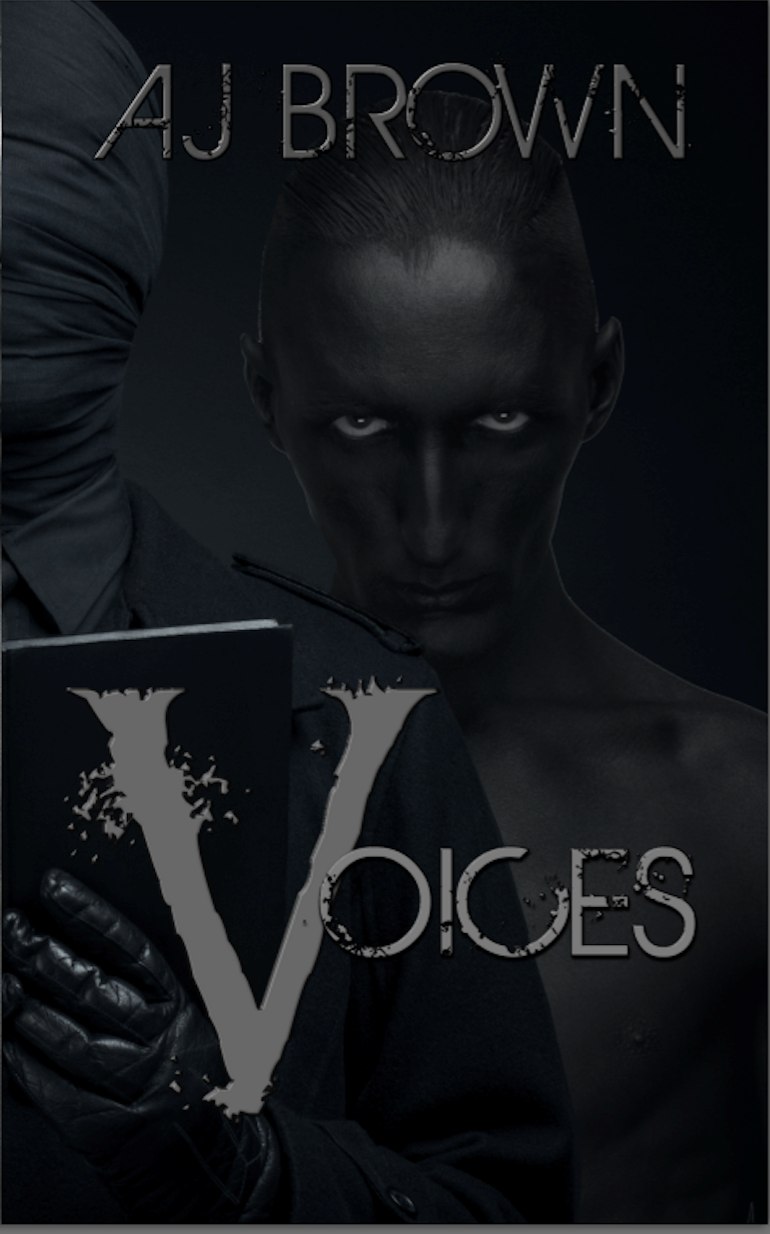 She had not been ready for the final words Lewis said to her before looking down at his leathery hands and seeing tear drops strike the floor between his feet. He takes a deep breath and leans back in his chair. He gives a dismissive wave and shakes his head. He doesn’t have the heart to go any further.
She had not been ready for the final words Lewis said to her before looking down at his leathery hands and seeing tear drops strike the floor between his feet. He takes a deep breath and leans back in his chair. He gives a dismissive wave and shakes his head. He doesn’t have the heart to go any further. Danny shrugs in an aww-shucks manner. “I wouldn’t say I did anything great. I just listened to them, their words, their body language. Kids are fairly transparent when they are young so reading them is easy. It’s when they become teens that you really
Danny shrugs in an aww-shucks manner. “I wouldn’t say I did anything great. I just listened to them, their words, their body language. Kids are fairly transparent when they are young so reading them is easy. It’s when they become teens that you really “There’s always a first time for everything, right?” Danny pauses. “Peter wasn’t such a bad person. He was just a bad coach. He wanted to win more than anything else. He was a lot like the guy who coached Scott Hall. His name was Barry Windstrom. I don’t remember much about him—I never played for him—but what I do remember is he yelled a lot on the field, but off of it, he was supposedly a kind man, wouldn’t harm anyone. Turns out, he was the person who killed Scott Hall.
“There’s always a first time for everything, right?” Danny pauses. “Peter wasn’t such a bad person. He was just a bad coach. He wanted to win more than anything else. He was a lot like the guy who coached Scott Hall. His name was Barry Windstrom. I don’t remember much about him—I never played for him—but what I do remember is he yelled a lot on the field, but off of it, he was supposedly a kind man, wouldn’t harm anyone. Turns out, he was the person who killed Scott Hall.